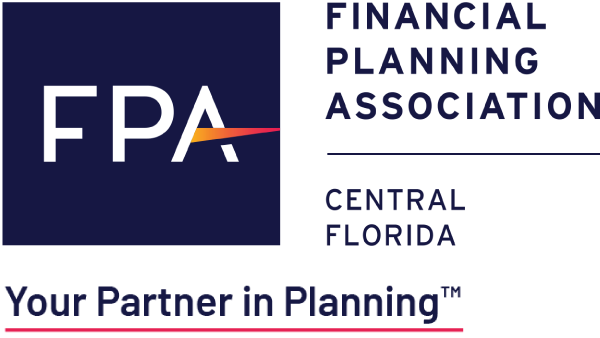
Financial Planning for Families with a Person with Special Needs

As the parent of a 31-year-old daughter with special needs, Lili Vasileff knows first-hand just how much financial strain that situation can exert on a family. “The costs can be enormous, and it feels like you’re always at risk of losing benefits,” she says.
As an FPA member and CERTIFIED FINANCIAL PLANNER™ (CFP®) professional who heads Divorce and Money Matters, a financial planning firm based in Greenwich, Conn., Vasileff also knows from her own experience just how valuable the financial planning process can be in helping families with a person with special needs to address those unique financial demands. “My greatest motivation in life is to provide for my daughter financially, and to do so, you absolutely have to make financial planning a high priority. It enables a family to really focus on how they can best meet the person’s needs as well as their own.”
As much as those needs will differ from situation to situation, the six financial issues detailed below are common to many families that include a child or adult with special needs. Here Vasileff and other CERTIFIED FINANCIAL PLANNER™ professionals from the Financial Planning Association offer advice on how to address those issues.
- The issue: Maintaining eligibility for, and maximizing, government benefits and entitlements.
A person with special needs (and by extension, that person’s family, in many cases) may be entitled to collect benefits via a range of federal, state and local sources, among them Social Security Disability Insurance, Supplemental Security Income, Medicaid, Medicare and VA disability compensation (for links to more information about these and other programs for people with special needs, check out this federal government web page.)
The level of support/benefits a person is eligible to collect generally depends on three factors, says Vasileff: (1) the age of the person with special needs; (2) the income of the individual and/or their family; and, (3) the value of the assets owned by the individual and/or their family. It’s critical for families to be aware that eligibility for certain benefits can fluctuate as the person ages, and as income and asset value change. What’s more, because eligibility for many of these programs involves legal complexities, she suggests people seek professional guidance from an experienced government benefits adviser or consultant. “You need someone who can properly present a case for you, who knows the process, including when and how to contest and challenge certain benefit eligibility decisions, because there almost certainly will be decisions that you will need to contest.”
- The issue: Guardianship of a person with special needs. It’s one of those what-if questions that the guardian(s) of a person with special needs must answer: If something happens and you can no longer serve as the person’s guardian, who will assume that responsibility? In this case, it’s a matter of deciding who is best equipped to serve as the person with special needs’ legal guardian — and perhaps to make critical decisions on that person’s behalf — should you die or otherwise be unable to serve in that role. Once you decide who will serve as guardian, then consult an attorney to draw up the necessary legal documents to formalize the decision.
- The issue: Using tax-favored strategies to cover the cost of a person with special needs care. Families with a person with special needs may consider establishing a trust as a vehicle through which to pay for certain of that person’s expenses. Here’s another case where legal complexities make it wise to consult an expert, such as an estate planning attorney with experience in the types of trusts that apply in these situations, such as special needs trusts (SNT), of which there are several varieties.
One is a first-party
special needs trust, which is oriented more toward a high-functioning
person with a disability, where that person receives money directly from the
trust. The value of assets
inside such a trust may impact the special needs person’s eligibility for
certain government benefits, an important factor to weigh in the trust
discussion. “The downside to a first-party SNT is if the trust is worth over
$2,000, it will cause the beneficiary to lose Medicaid, Supplemental Security
Income, and other public benefits,” explains FPA member Stacy Francis, CFP® who
heads Francis Financial in New York, NY. “The loss of these benefits,
especially Medicaid, can be detrimental to the person with disabilities.”
With a third-party special needs trust, by
contrast, “the trust is left to
someone besides the person with special needs, and [it] distributes the money
like an allowance,” says Francis. “A third-party SNT allows for the disabled
person to still be eligible for public benefits. Another benefit of a
third-party SNT is that after the death of the beneficiary, the money can be
left to a charity.” The government receives the remainder of what’s in a
first-party SNT after the death of the beneficiary, she says.
Vasileff recommends that families with a person with special needs also consider establishing a tax-favored ABLE (Achieving a Better Life Experience) account for the person. An ABLE account functions much like a 529 college savings plan, where money inside the account, including principal and earnings, can be withdrawn tax-free provided it is used to cover specific costs related to the person’s disability. For more about these accounts, visit the ABLE Resource Center’s web site.
If you know people (friends, relatives, etc.) who are interested in contributing financially to help to support a person with special needs, instead of giving a financial gift directly to the person, which can negatively impact their eligibility for government benefits, it can be preferable to make a contribution to the person’s ABLE account instead.
- The issue: Meeting the extra cost of caregiving, home modifications and more. Vehicles like ABLE accounts and special needs trusts are designed to relieve families of at least some of the added financial burden that comes with caring for a person with special needs. While those extra expenses vary widely depending on the specific needs of the person, they tend to add up quickly, with line items for caregiving, unreimbursed medical bills, modifications to the home, special equipment, transportation, clothing, recreation — the list of added costs can be daunting. “Some will be covered by insurance,” notes Vasileff. “But in my experience, much of it comes out of pocket.”
For help covering those expenses, be sure to consider tapping the many private funding sources that offer financial support to special needs people and their families, for equipment, treatment and more. The eSpecial needs website and the Kaufman Center for Children provide good starting points in the search for information on private funding sources.
- The issue: Holding down a job while providing care for a person with special needs. If you’re a full-time or part-time caregiver for a person with special needs in your life, how will that impact your ability to work and earn an income? How will it impact your workplace benefits, retirement savings and overall financial picture? These are all important factors to consider.
- The issue: Wealth transfer and other estate planning considerations. Say, with only good intentions, you want to leave money or other assets to a person with special needs. Rather than those assets passing directly to the person when you die, which can impact their eligibility for government benefits, it can be better to leave them to the person’s special needs trust instead.
As complex and potentially overwhelming as issues like these can be for families with a person with special needs, “there are a lot of good people, and some really valuable resources, that are available to help,” Vasileff says. She recommends the site Protected Tomorrows as a good resource, along with the sites in the links referenced previously. To find a financial professional locally with expertise in planning for special needs, visit the Financial Planning Association’s searchable national database of CERTIFIED FINANCIAL PLANNER™ professionals at www.PlannerSearch.org.

